The Republic of Kosovo, situated in the Balkan region, is the youngest state in the world having declared its own independence from Serbia on the 17th February 2008. It is a landlocked country and its neighbouring countries are Serbia in the north, the Republic of Macedonia in the south, Albania in the west and Montenegro in the north-west. The largest city and the capital of Kosovo is Pristina and other major cities are Peć, Prizren and Mitrovica.

Kosovo was a part of the lands of the Illyrian tribes, then under dominance of the Roman, Byzantine, Bulgarian, Serbian and Ottoman empires. In the 20th century it was shared between the Kingdom of Montenegro and the Kingdom of Serbia and in 1919 became part of their successor state, the Kingdom of Yugoslavia. After the Kosovo War and the disintegration of Yugoslavia, the territory came under the interim administration of the United Nations (UNMIK).
In February 2008, the Assembly of Kosovo declared Kosovo's independence as the Republic of Kosovo. Today its independence is recognized by 56 UN member states.
The Republic of Kosovo aims at an active foreign policy, which should be in concordance with the aims of the people of Kosovo for Euro-Atlantic integration, preservation and strengthening of the relations with allied countries, establishment of good relations with countries of the region, and accomplishment of the status of a trustworthy partner in the fight against the threats to the international security.
After 17 February 2008, when the Assembly of Kosovo declared the independence of the country, Kosovo began the campaign for the recognition of the Republic of Kosovo in all countries and the creation of bilateral relations with countries that had already recognized Kosovo. The government is also taking measures in order to develop regional cooperation and integrate the country in Euro-Atlantic structures; stimulate further development of bilateral relations with the United States of America and strengthen relations with other countries of global or regional importance; promote the image and the economic interest of the Republic in the world.
ECONOMY
Taking into consideration the favourable business climate, stable macroeconomic environment and the excellent opportunities across different business sectors, Kosovo is increasingly becoming a very attractive place for doing business.
Over the past few years Kosovo's economy has shown significant progress in transitioning to a market-based system and maintaining macroeconomic stability, but it is still highly dependent on the international community and the diaspora for financial and technical assistance. With international assistance, Kosovo has been able to privatize 50% of its state-owned enterprises (SOEs) by number, and over 90% of SOEs by value. Kosovo's Ministry of Energy and Mining has solicited expressions of interest from private investors to develop a new power plant in order to address Kosovo and the region's unmet and growing demands for power. Kosovo continues to work with the international community on measures to improve the business environment and the government completely supports and encourages foreign and national investments, which would help in the creation of a strong and competitively free market.
With the declaration of independence of Kosovo and the subsequent international recognition, the last obstacle for economic development has been removed thus allowing the continuous inflow of foreign investments. By setting economic growth as its first priority, the Government of Kosovo has also committed to continue economic reforms in order to make the country more attractive for foreign investors.
Kosovo has low taxes and a simple tax system with additional fiscal reforms being currently planned by the government. It further offers macroeconomic stability, simple and quick business registration procedures, the Euro as its official currency, and a young, dynamic and well educated work force. Through its membership in Central European Free Trade Agreement (CEFTA), investors entering Kosovo will in fact enter a market of 28 million people.
MAIN SECTORS AND INVESTMENT OPPORTUNITIES
ENERGY AND MINES
Kosovo has abundant underground resources and, with 14,700 million tonnes of lignite reserves, it occupies the fifth place in the world. The reserves of this mineral, which are used as the main source of energy production in Kosovo, are estimated to last for the next 650 years, with the rhythm of current extraction. The lignite is distributed across the Kosovo, Dukagjin and Drenica basins, although mining has so far been restricted to the Kosovo basin.
Taking into consideration the high market demand for energy in the region, the Government of Kosovo is currently developing major projects regarding new lignite exploitation and power generation facilities. These projects offer unique opportunities for companies willing to engage in the energy or mining sectors in the region.
Besides lignite, Kosovo is also rich with zinc, steel, gold, cadmium and bismuth. The culture of extraction of lignite dates way back to the Roman age and the modern extraction of minerals in Kosovo began in the 1930s with the establishment of Trepça Complex. Nowadays Trepça is a socially-owned property and it consists of eight mines, none of which is active.
TEXTILES
With over 200 years of tradition, textiles were the second largest industrial sector in Kosovo, after mining. In the past, products from Kosovar manufacturers targeted the local market, as well as other markets throughout the former Yugoslavia, Western and Eastern Europe and the United States. Although the textile industry has experienced a significant recovery during the past years, the majority of businesses are still small and take the form of micro enterprises. Consequently, they cater solely for the Kosovo market and are primarily geared towards a niche market.
Kosovo offers three major benefits for investors wishing to revamp one of the existing SOEs or found a new textile manufacturing company: above all a cheap, well skilled and experienced work force; then a solid base of technology that can be acquired through the ongoing privatization process and finally numerous subcontracting and outsourcing possibilities.
With the existing know-how, cheap labour force and other comparative advantages that the country offers, including the friendly business and investment environment, the textile industry in Kosovo has therefore the potential to become highly competitive internationally.
AGRICULTURE AND FARMING
Kosovo is rich in agricultural land; in fact 53 % of the total surface is arable land. The most important fields of agriculture in Kosovo are the vegetable and grain sectors. However, Kosovo is also well known as a provider of different types of fruits and grapes.
In order to improve the competitiveness of the sector and consequently stimulate local production, the Government of Kosovo has recently introduced different incentives for farmers and processors. The zero percent rate for most agricultural inputs and capital goods, together with VAT exemption for a wide range of agricultural inputs, have been designed to strengthen local production and enable it to further compete with foreign products.
Due to its geographical composition, Kosovo also offers very good conditions for livestock farming and, at present, the country is experiencing a livestock recovery process. Livestock farming has made great steps forward in recent years.
In particular, there are two main factors in favour of livestock investments in Kosovo. Firstly, the country offers very good natural and climatic conditions for various types of livestock farming. Secondly, market demand for livestock farming products is currently much higher than domestic production. The planned revitalisation of the food processing industry will furthermore create higher opportunities for livestock farming in the future.
FOOD PROCESSING
Food processing in Kosovo has been traditionally managed by the socially-owned enterprises, but they are not active anymore. Currently, new private companies have begun operating in this field. Most of these companies are small and are not capable of meeting the high demands of the market. There are numerous agro-industries in Kosovo with high market potential, offering potential investor immediate access to suppliers of raw materials, substantial inherited capital, technical capability and promising market prospects. The cheap workforce and the custom and tax incentives offered for agricultural inputs and capital goods, furthermore affirm the opportunities available in this business field in Kosovo.
VINEYARDS
Grape-growing and wine production has a long tradition in Kosovo. During the golden years, the wine industry had a production capacity of up to 50 million litres per year only in Rahovec. In 1989, the export of Rahovec wine reached 40 million litres and was mainly distributed in the German market. The viniculture still represents one of the most important sectors of the Kosovar agriculture, with a good potential to attract foreign investments. The continental climate and the height of 300-400 meters above the sea level are incredibly well-suited to vineyards and the development of wine grapes.
TOURISM
The description of Kosovo’s potential in tourism is closely related to the geographic position of Kosovo. Its position in southeastern Europe, with a central position in the Balkan Peninsula, represents a crossroads which historically dates back to Illyrian and Roman times. The mountainous south of Kosovo has great potential for winter tourism. One of the most interesting opportunities for foreign investors in this region is the skiing resort Brezovica in the Sharr Mountains. Also in the Sharr Mountains, in the very south of the country near the borders with Macedonia and Albania, Kosovo is offering for privatization about 22,000 hectares of largely untouched land in the mountainous area. The region offers excellent tourism opportunities, such as skiing, ecotourism, paragliding, mountain biking, rock climbing, trekking, kayaking and horse riding. Kosovo is generally rich in mountains, artificial lakes and rivers and therefore also offers prime possibilities for hunting and fishing.
The wellness-tourism in Kosovo also offers great potential for development. The numerous thermal springs of Kosovo are well known in the region for their healing effects. Foreign investors in this field will find high demand in the regional market.
CONSTRUCTION
During the past years the construction industry has become one of the most important sectors contributing to Kosovo’s economic growth. Financed mainly through foreign aid, the construction sector in Kosovo has so far utilised several hundred million Euro that were primarily used for the construction of new homes, or for the rehabilitation and development of the road infrastructure respectively. In order to meet the existing market demand, in the next few years Kosovo will need new apartments, including the associated infrastructure, such as roads, kindergartens, schools, leisure facilities, restaurants etc. The construction industry remains a sector with highly promising economic potential for Kosovo.
A further factor which is helping to boost the development of this sector is the demand for road and highway construction. The Government of Kosovo has set itself a goal to connect the country in three main directions with the most important international road corridors in Macedonia, Albania and Serbia.
INFORMATION TECHNOLOGY AND TELECOMMUNICATIONS
The IT sector in Kosovo, including Internet Service Providers, has seen a remarkable development since 1999. From being inexistent ten years ago, Kosovar companies in the IT sector offer today high quality services and the latest technologies to their customers both locally as well as to foreign companies who want to outsource their software development or support centres. Kosovo has the youngest population in Europe. It is both skilled and multilingual, with English being almost an official language due to international administration in the last nine years. In addition, many Kosovar people who have studied abroad are now returning to Kosovo, bringing with them skills and knowhow. Kosovo has one of the highest internet user rates in the region, but the demand is still much higher than the offer, providing great opportunities for foreign investors.
WOOD PROCESSING
Forests and related surfaces make up around one third of the total territory of Kosovo and represent a resource of special importance for Kosovo’s economy. Due to the sufficient availability of inputs, Kosovo offers great investment possibilities in every single wood processing cycle. Potentials for foreign investors range from door and window to different furniture production. There is currently a large pool of companies in Kosovo that could be partners in cooperation or outsourcing.
Kosovo’s wood processing industry has experienced significant developments during the past eight years. Due to better organisation and sufficient service-providing clusters, Kosovar producers have been able to increase the quality and product range, thereby allowing expansion into foreign markets. Currently, Kosovar wood processors supply furniture both for the domestic and trade markets (for example hotels) to companies in Germany, the Netherlands, Switzerland and other neighbour countries. Kosovo is offering various incentives that aim to further promote and facilitate primary and secondary wood production.
|
KEY INDICATORS
- Area: 10,908 km²
- Population: Total population 2 126 708 (estimated)
- Population density: 195 p/km2
- Ethnical Groups:
- Albanians 92 %
- Serbs 5.3 %
- Other ethnic groups 2.7 %
- Distribution according to age: 0-14 years 33 %; 15-64 years 61 %; 65 and above 6 %
- Gross Domestic Product: (nominal) 2007 - Total €3.343 billion. Per citizen: €1.573
- GDP growth rate: 4,9% (estimated).
- GDP composition by sector:
- agriculture: 20%
- industry: 20%
- services: 60%
|

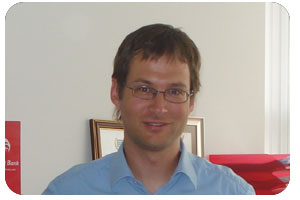 Philip SigwartChief Executive Officer (CEO)Procredit Bank
Philip SigwartChief Executive Officer (CEO)Procredit Bank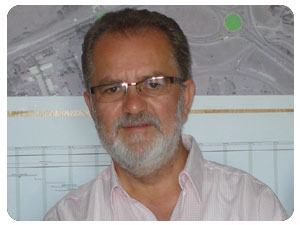 Afrim EthemiPresidentARDA REI
Afrim EthemiPresidentARDA REI Ardian R. HoxhaSUPERINTENDENTAMERICAN SCHOOL
Ardian R. HoxhaSUPERINTENDENTAMERICAN SCHOOL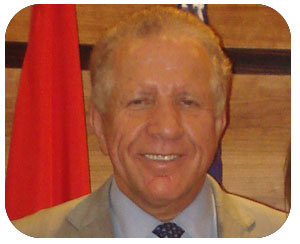 Behgjet PacolliPresidentMabetex Group
Behgjet PacolliPresidentMabetex Group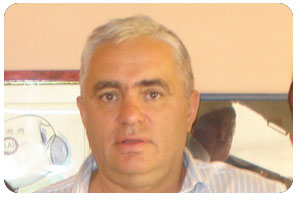 Remzi EjupiGeneral ManagerEurokoha Reisen
Remzi EjupiGeneral ManagerEurokoha Reisen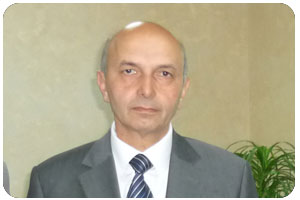 Isa MustafaMayorMunicipality Of Prishtina
Isa MustafaMayorMunicipality Of Prishtina Isa MustafaMayorMunicipality Of Prishtina
Isa MustafaMayorMunicipality Of Prishtina Isa MustafaMayorMunicipality Of Prishtina
Isa MustafaMayorMunicipality Of Prishtina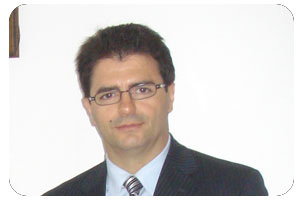 Florin KrasniqiOwnerKosova Steel Group
Florin KrasniqiOwnerKosova Steel Group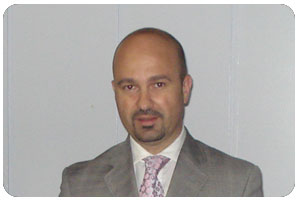 Agron MustafaManaging DirectorPrishtina International Airport
Agron MustafaManaging DirectorPrishtina International Airport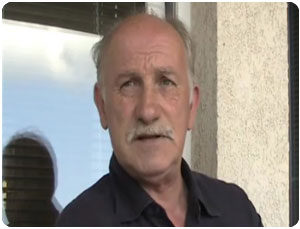 Naip ZekaChairman of the Governing BoardIndependent Commission for Mines and Minerals
Naip ZekaChairman of the Governing BoardIndependent Commission for Mines and Minerals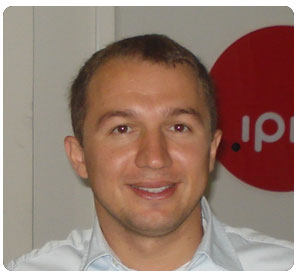 Akan IsmailiCEOIPKO
Akan IsmailiCEOIPKO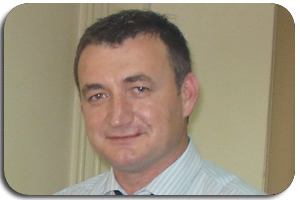 Bekim XhafaCEOCongress and Event Organization
Bekim XhafaCEOCongress and Event Organization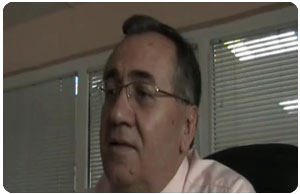 Ruzhdi KadriuPresidentInterpress
Ruzhdi KadriuPresidentInterpress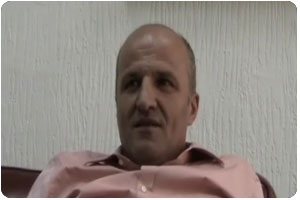 Ekrem LlukaPresidentDukagjini Group
Ekrem LlukaPresidentDukagjini Group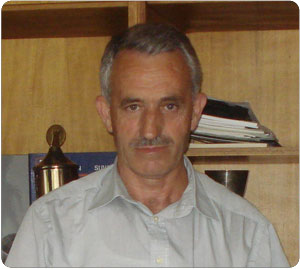 Muhamet ShalaGeneral ManagerNewko Balkan
Muhamet ShalaGeneral ManagerNewko Balkan PTKTelecommunications
PTKTelecommunications Regional Water CompanyEnvironmental
Regional Water CompanyEnvironmental KEKEnergy & Mining
KEKEnergy & Mining Independent Commission for Mines and MineralsEnergy & Mining
Independent Commission for Mines and MineralsEnergy & Mining Hidroterm sh.p.k.Construction
Hidroterm sh.p.k.Construction Newko BalkanTrade & Industry
Newko BalkanTrade & Industry NEWCO FERRONIKELI COMPLEX LLCTrade & Industry
NEWCO FERRONIKELI COMPLEX LLCTrade & Industry Kosovo Steel GroupTrade & Industry
Kosovo Steel GroupTrade & Industry Dukagjini GroupTrade & Industry
Dukagjini GroupTrade & Industry SharrcemTrade & Industry
SharrcemTrade & Industry Grand Hotel PrishtinaTourism
Grand Hotel PrishtinaTourism ProCredit Bank, KosovaFinance
ProCredit Bank, KosovaFinance